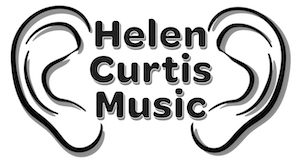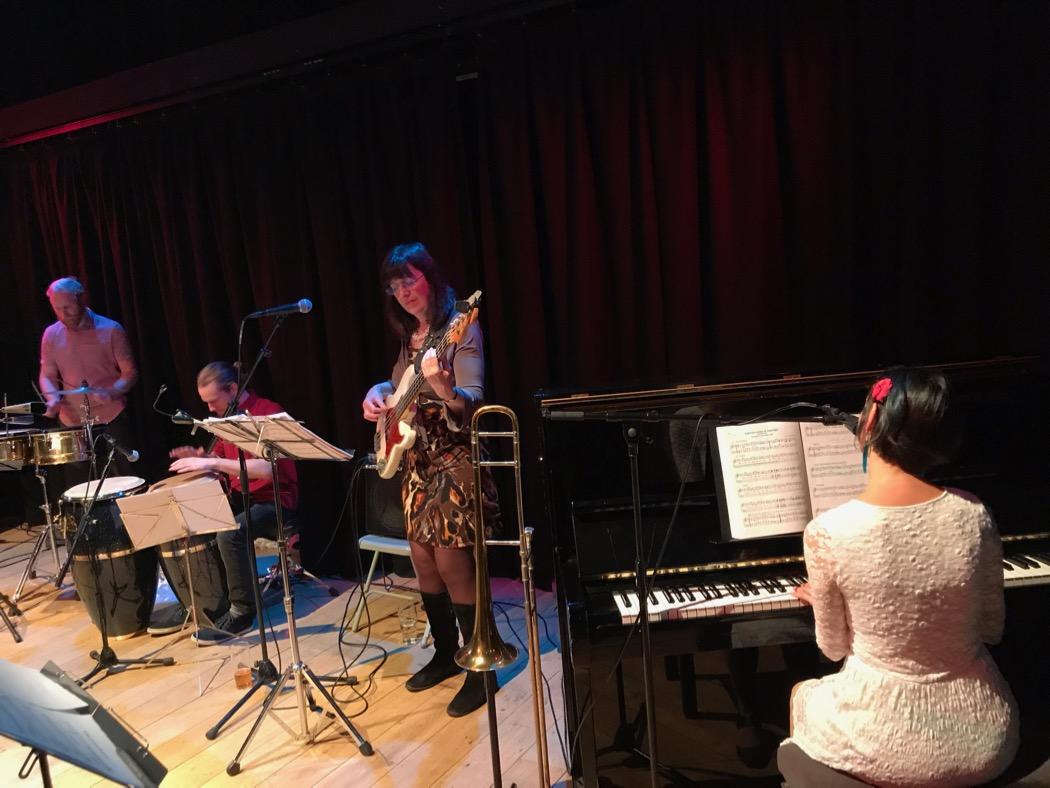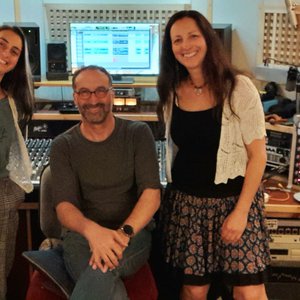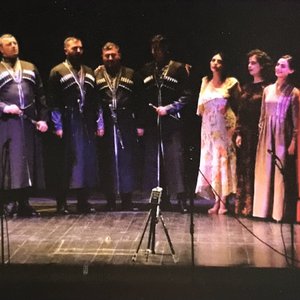29 Mar 21
There is a phenomena that many music students, especially adult students can probably relate to. You have your lesson, you spend time practicing at your instrument, you get to a point where you feel pretty good about the music you've been learning, you arrive at the lesson, you sit down... and BAM the nerves kick in, your music falls apart, you feel frustrated and annoyed, you say 'but I could play this at home'!
Trust me, I believe you - I know all about this, because at some point every professional musician has been there.
So I wanted to try to make sense of this of common phenomena, because understanding something is key to knowing how to deal with it.
Firstly, and this is important, your nerves will always be there. You may get to a point where they are less, but sometimes they just decide to arrive without warning, and sometimes they suprise you by not being there.
So why does it happen?
The change occurs when we are being observed- maybe a teacher, a friend, a partner, an audience. Suddenly we feel vulnerable, like our bike has unexpectedly lost its stabilisers. We loose our power, we loose our ownership. No matter how few or many observers, our consciousness can shift dramatically and suddenly into an altered state. We feel our bodies move into a completely sensual experience, with our hightened senses taking over our logical and rational mind. The most present thing becomes the present.
If our motor responses and fluid motion can't pull out the goods when we need, then it is difficult to play musically when our nerves kick in. Whatever happens we need to learn to flow when we want.
So what to do about it?
The first thing to say is that these instincts are the same instincts that bring sparkle to your music. Becoming aquainted with these instincts bring sparkle, and becoming aquainted with the actual music, brings depth. Depth and sparkle = great music. We accept that we will have to visit outside of our comfort zone, but perhaps our logical mind can tell us it's safe to do this.
The mind is complex and fascinating, and speaking personally these experiences and challenges have been invaluable in my life. The effort and the challenge has always been worth it for the experience and skill gained.Through musical practice and performance you can deal with the massive and the minute. You can deal with your human responses, from your intellectual mind to your purely instinctive mind. Finding a balance is a lifetime of changing practice and thought. You may find it is like sand through the fingers, somedays you can hold onto it, and some days it is elusive as the shifting clouds.
As a teacher when I suggest a new piece of music for a student, there are various factors I must consider. What level of challenge and what sort of music does the student want at this moment in their musical life? This can vary enormously depending on what is going on in their lives and knowing how much they will give to practice. Finding a good balance between nurturing progress and relentless challenge is a skill. Giving a student a surmountable and ultimately satisfying challenge is vital.
Moving onto motor function then....this means that from piece to piece it takes an amount of commitment to learn the music. There is no moving away from the fact that the more practice you do, the more developed your skills will become. When I say 'your skills' I mean exactly this, because to compare it to anyone else is really pointless. Being inspired by someone else is totally different. It is wonderful to feel inspired by listening to someone play, it is a wonderful driving sensation to feel inspired and fired up, but comparision is not, because we are not them, and you have your skills and not theirs.
The thing about motor functions is that they take a really long time to develop. Of course it is different from student to student, and from piece to piece. Students find their forte. However this is the thing we need to master in order to perform well, and gain control over.... our nerves.
Musical development builds up over the years, but within those years we can break it down to the months, the weeks, the days, the hours, the minutes, the seconds.
When we get nervous and our hightened senses take over, if the motor functions have not been fully processed in the part of the brain reponsible for fluid movement, then we make mistakes, which likely ruins the flow. Some pieces of music, may take several weeks. As we develop, so does our capacity for practice, and as the pieces get bigger, then we'll probably find ourselves learning some music for months, but it's always balanced with keeping it interesting and motivating.
When music falls apart in a lesson this is ok because we can learn from it. It informs us, that the music is not fully 'cooked' yet, it's not had time to 'ripen' and there is still more practice to be done. It also informs us on the type of practice we still need to do. Which means that to play how we want to play finally, we must practice and we must practice as we want to play!
All this talk of motor functions doesn't sound particularly musical does it?
This is where practice comes in. How we practice is really crucial. The most effective way our bodies react to fluid motor function is through sensory experience. Our bodies react physically to the sensation of good music, this means when we practice we should always play musically - because behind the scenes your ears and all your instincts are listening and feeling and taking it in!
Any practice strategies you may use, repetition, slow finger work, fast finger work, rhythmical, notational, intellectual- needs always to be combined with instinctive playing, listening and feeling what you are doing.
When it comes to performance time (lesson or otherwise) and your music is ready, then when the nerves put your body into sensual over-drive, maybe you can let the senses take over knowing that your fluid motion works. You might find that because you can let your senses take over, you play in a way that you didn't think was possible. Maybe the rush of instincts will take your music to a place that you haven't heard or felt before. The music may take on a life of its own. You might find it doesn't feel like you playing, the notes might simply flow from your fingers......
The bottom line as always, is it's all about the practice, how you practice, what you practice, how much you practice. How deep can your thoughts go?
Happy practicing, keep inspired!!





